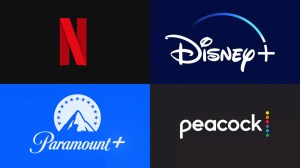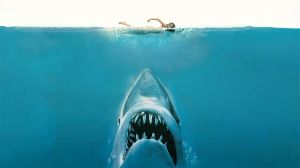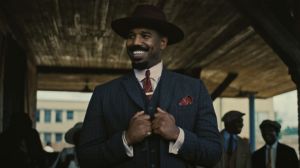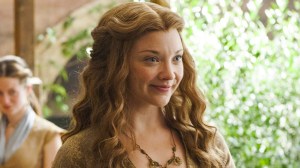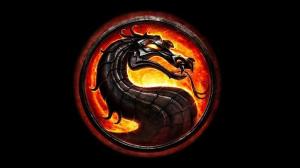The coronavirus pandemic took a toll on the entire globe, impacting everyone’s careers and livelihoods from all walks of life. As witnessed over the past 16 seasons of Discovery’s Deadliest Catch, fishing for king crab presents captains and crews with harrowing challenges, a profession made all the more difficult due to the effects of the pandemic. Regardless of his years of experience, “Wild” Bill Wichrowski knew that it was hard to prepare for what the pandemic threw at him and his crew, forcing him to adapt to those challenges if he hoped to succeed. New episodes of Deadliest Catch premiere on Tuesdays on the Discovery Channel.
Videos by ComicBook.com
In the wake of the global pandemic, half the crab boats of the Bering Sea fleet are tied up in Seattle. Now an existential threat faces the fishermen who make the long-haul trip to Dutch Harbor, Alaska, for the 2021 Crab season – a potential closure of the entire fishery. Crabbing isn’t just a way of life for the captains and their crew. This year, it’s a fight for the industry’s survival. If they’re going to make it work, the fleet will need to make sacrifices and band together across lines – even with long-sworn enemies. Their livelihood depends on it or they could potentially face the end of their careers.
ComicBook.com caught up with Wichrowski to talk the new season, challenges his crew faced, and advice he’d give to anyone who wanted to pursue this profession.
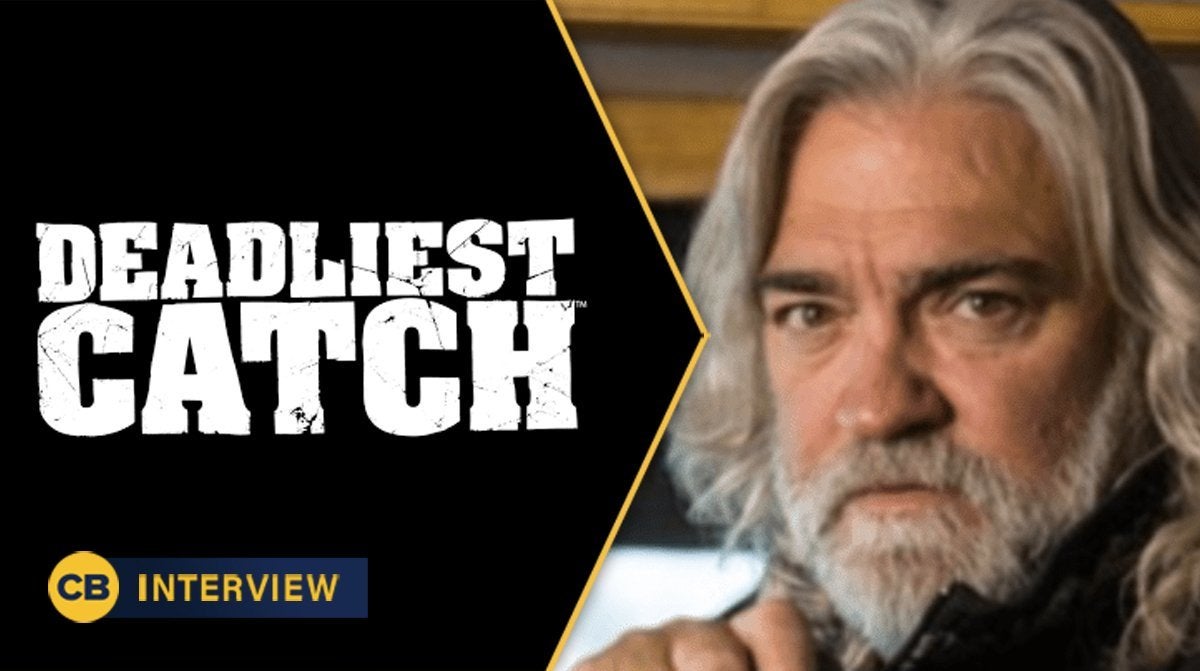
ComicBook.com: I feel like this past 18 months or so everyone around the world has definitely been living an entirely different lifestyle than what anyone anticipated. And I wondered, for you specifically and your career in this show, what were the biggest challenges that you faced over the past year?
Bill Wichrowski: Oh, trying to do the business and have it filmed. It was really complicated because we have the liability of the camera crews. We’re throwing more people into the loop on who’s on the boat. All of us had to go through a 10-day quarantine and then get tested before we could assemble and get started on moving around town in a very limited manner to gain parts and pieces to do gear work. This is jumping ahead, but the whole entire season — I didn’t realize this till I got home — the entire season, which was about three and a half months … when we came to town, we were exclusively up at the island up until the very end. You were not even allowed off the boat.
So for three and a half months, we never left the boat. And that translates into three and a half months traveling about 15 steps to my stateroom and maybe 25- 30 down to the galley and the engine room. So I got home and I felt fine, but when I started moving around a little bit and started to walk and exercise and get out, go out and do a little fishing or whatever, walking through streams and stuff, it was weird because the body had taken on a whole different idea. We’re stagnant.
But, going back to your question, it was really hard to keep these guys contained in the beginning. To get parts and pieces, it was extremely difficult because all the stores and vendors were going through the same thing. Not to mention the shipping of parts and pieces, because production pretty much stopped around the world, also. It’s the weirdest year ever for not only our business, but for the world, I think.
Not at all to make light of the pandemic in any respect, but did the challenges you faced come with some unexpected opportunities that you wouldn’t have experienced otherwise? Or did you take away any new appreciations for your profession?
Well, the degree of difficulty that it added makes you look back and think how, not how easy some of the other seasons were, but how much easier they came together. And the funny thing is, I got off the boat last year, flew to South Carolina, and leased a house. I have some cars and golf clubs and all that stuff here because I spend a lot of time in the Southeast when I’m off the boat now. And I leased the place for two weeks because it was right when the virus and the plan came out, they were thinking, “Oh, this is going to be over in a couple of weeks,” and how wrong that was.
There’s a lot of things about the pandemic that concerned me. We’ve tried to fight some pretty serious diseases. AIDS, heart disease, all this other stuff that even some of the older vaccinations that we developed and they spent years and decades trying to develop stuff, and all of a sudden this hits and we’ve been what, a year? We have a vaccine that we want to give to the world. It’s two or three different forms, and I mean, I did it. I did it, but out of necessity because of having the film crews and my guys.
But I guess the lesson for me is, I’ve always lived my life this way, the problems are hurdles. You either go over them, around them, or through them. You just got to keep going. So we always have, everybody always has mechanical, you have crew problems, you have weather. And after doing it for 40 some years, it’s not just another day. It’s just another problem to resolve in one way or another, so this was definitely a lesson in problem-solving.
Discovery surely shows audiences some pretty intense experiences on the series, but some audiences might think they can handle what they’re seeing on-screen. What do you think Discovery falls short of getting across to audiences that you could only fully experience if you were there on the boat?
I think the misconception where a lot of these people think that they could do this, is we do film a TV show. That is real, what we do. But to make it interesting, Discovery films the very high points and the very low points. What the viewer doesn’t see is the days and days and days of monotonous, mediocre weather, so-so fishing, just hauling pots. It’s not the exciting, big waves. It’s not huge pots. It’s just the grind. When my crew says we have a 32-hour day, we usually work about 32 hours before we take a break and it’s beyond most people’s comprehension.
When you’re out there, especially when you’re new, you’re going to bust your knuckles. You’re going to hit your elbows, your knees. You’re going to twist the ankles. You’re going to get the onset of carpal tunnel, where your hands won’t be — we call it “the claw.” You can’t straighten your hands after a couple of days. Nobody moves the muscles and does the work that’s involved with this fishing. You’re going around a moving platform with thousand-pound boxes swinging around in the air and you got a guy taking a picture, photos of you and videos of you, so when you’re starting to break down, they got the camera right in your face. You know they’re going to do it. Some of these guys are like, “Why do they have to film me? I’m trying my best.” And it’s like, that’s what the show is. You signed up for it.
We had a kid who failed and we felt bad for him because he was a friend of a friend and he was in the Corps for a while and he just, he couldn’t do it. And there were a lot of people … I think I was about as nice as I could be to him, considering my personality, because he was just a nice kid. Hell, he had the softest hands I have ever seen of anybody working on boat.
The show probably scares a lot of people away from the profession, but it probably also makes the occasional viewer think that they should pursue king-crab fishing. What would you say to someone who thinks that this is the right job for them?
Forget about it. It’s like, one in ten.
Somebody that has a family or there’s some employment involved with their life, somebody that already has a career that wants to change because … I’ll be generous and say one in ten people will make it, and that’s probably an exaggeration. So when they get up there and they realize, “Holy smokes, this is 10 times worse than I thought it would be.” All of a sudden, doing roofing with their uncle or their father, it doesn’t seem that bad. That’s why you almost need desperate people to push through the pain and the ache and the arc of this thing that don’t have anything to fall back on. They make the choice to come up and this is one of the last shots and they know if they make it, they’re going to make something out of themselves. They’re going to be able to stand tall. They’re going to be able to stand proud because of the percentage of people that pull through it.
And, you know what, it’s so much easier now than it was 40 years ago. It is ridiculous. We just have such smaller quotas and better galleys, better food. Lunch, when I started, was one of those honey bears and one of the chocolate syrups and you tilt your head back and squeeze them both in your mouth at the same time to try to get a little sugar and energy. That was lunch.
I get people continually telling me they want to go. Or they’ll have a troubled son or a nephew or something or neighbor and “Oh, you can straighten them out, Bill.” I know I did it all the time but I don’t really want to take the troubled masses and try to fix them.
Since you clearly need a specific mindset to succeed in this job, or have gone through similar hardships to get to the point of being a successful crabber, do you have an undefinable bond with all other crabbers inspired by mutual respect or is it like any other job where there are some people you just can’t stand and don’t want to work with?
Oh, there’s plenty of both sides of it. It’s you gain either lifelong camaraderie or you hope you never see a person again. We don’t ever want to break anybody down or destroy them because that reduces our workforce on the boat. So we never get up there and go, “Oh, we’re going to run this guy into the ground and bury him.” Because once we do, we all have to pick up the slack. But there’s a certain thing when you just … when people come for a job interview, you tell them, “Go sit in the freezer for a week and have somebody come in every half hour and throw a bucket of water in your face and then tell me you want to go.” But these guys are all, “I can do it. I can do it. I can do it.”
I had the one guy that was pretty famous on the boat. His name was Kelly Collins. He was in Kodiak telling me he was going to run circles around everybody on the deck and run circles around me as a fishermen. Well, the first day, in six hours, he’s up in the wheel, he says he wants to quit. I mean, he was a kid from Alabama.
It’s a pretty commonly reviewed scene on the show. And you know what? I forced this kid to finish the season. And it’s funny because he had all these child support, legal problems, and I forced him to finish. And he went home and got his paycheck. He had to go home to legal problems, but he was able to have a Christmas for his kids. He was able to pay some back child support. And his sister called me and said, “He called me crying. He wanted to come home a million times and you made him stick it out. Now his biggest brag in life is that he finished the season on the boat.”
But, hey, that’s the best thing about crabbing. Once you get through it and you get the thumbs up, it’s the best thing because you don’t have to deal with it until the next season and you can just live on the top.
Deadliest Catch already has some spinoffs and now with discovery+, there are even more spinoffs to their popular programs. If Discovery approached you and said you could do any sort of spinoff you wanted, even if it wasn’t about fishing and was about travel or cooking, what kind of show would you want to host?
I retired from fishing a few years ago and I ran sport fishing boats out of Mexico, Costa Rica, and Alaska and there’s a lot of that going on. For the longest time, I wanted to do, I don’t know if you remember The American Sportsman when you had Curt Gowdy and he would sit in the front of a Range Rover and would be wrestling the boa and make all the comments. But I always thought something like that, where you take an athlete or an actor sportfishing around the world, would be a great show, but it’s been done a lot. I’m always talking to them because once you get into the television world, it opens a lot of doors. I just was in St. Thomas, U.S. Virgin Islands until last night and the number of people that knew me and the better care we got in restaurants and the people that opened their arms to us.
The doors that are opened are fantastic. So it’s such a wonderful by-product. And right now in South Carolina, I’m living on a pretty good-sized lake and there are so many nice old cars here. I’ve bought like 11 vehicles since I’ve been here. I shop them, I buy them right. I’ve been cleaning them up, painting them. And the automotive world is huge.
There’s property values here going crazy, too. This lake has everything from $6-million homes on down to run-down, single wides. I was talking to them about maybe something where we’re refurbishing cars and houses and properties. You got to sell this car to get the money, to finish this house. Or, if we make enough profit on this, we can buy this really nice car and really turn a profit on it. I don’t know, I’m always looking at it. I’m always hoping we can come across something. It’s me and millions of other people that are trying to do the same thing. So I’m a realist, but I’m still somewhat of a dreamer.
Bring it all together, have a celebrity bring a car to refurbish in a garage to sell to make money, but at the end, you toss a boa constrictor in the garage as another challenge.
Put a rattlesnake in the center console.
*****
New episodes of Deadliest Catch premiere on Tuesdays on the Discovery Channel.
This interview has been edited for length and clarity. You can contact Patrick Cavanaugh directly on Twitter.


